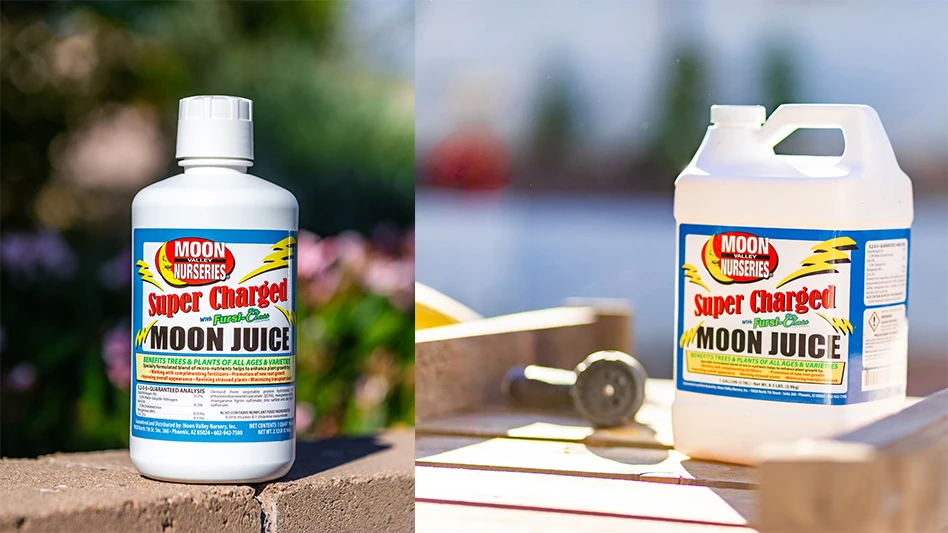

Business owners and customers have long grappled with record amounts of inflation, which steadily soared in 2022. However, per a Reuters report, Goldman Sachs predicts 2023 will experience a decline in inflation as supply chains improve and wage growth slows. So there’s hope on the horizon, but customers’ wallets are tighter than ever. Garden Center spoke to three IGCs about the best strategies for navigating inflation, competing with big-box stores and why they’re optimistic about the future.
Wingard’s Market | Lexington, South Carolina
At Wingard’s Market, co-owner Wally Steinhauser isn’t fazed by inflation. He recounts some issues the business has faced since 2020, such as high freight prices on pottery and order delays caused by supply chain issues. Nevertheless, his current outlook is practical: “Somehow, we’ve muddled through it. Business slowdowns are part of the business cycle. So, you’ve just got to keep your costs low and live to fight another day,” he says.
He says that Wingard’s hasn’t had any trouble getting customers in the doors. Foot traffic hasn’t dwindled comparatively since the rise of inflation, he says, but customers aren’t spending as much on some items. For December, revenue was down 15% after being up 10% in November. However, Steinhauser attributes this to early holiday shoppers and says the IGC has a loyal customer base and a prime location.

“From an economic perspective we’re doing well, so we’re fortunate that way,” he says. “Our revenue for the year ought to be flat, which is not a bad thing, because last year our revenue was at an all-time high.”
He says that inflation has heavily impacted the chemical market, which means lawn care products and fertilizers have jumped in price. He notes the price of Ferti•lome has shot up by 50%, as has the cost of Cole’s, a premium bird seed line. However, customers are still buying these items despite the increases. Steinhauser raised prices slightly on inflated items but hasn’t passed the entire increase on to the customer.
Wingard’s offers the usual plant fare, but it also has a gift shop, a birding section and a robust produce market — all of which are currently carrying the business, he says.
“Trees and shrubs aren’t moving as fast right now, even though in our hardiness zone, it’s the best time to plant a tree shrub before the heat’s here. But people want to plant those in the spring when they’re ready,” he says.
While Wingard’s is located nearly half a mile from Lowe’s and Home Depot, Steinhauser isn’t stressed about rivalries.

“Lowe’s is really more of our competition, because if you look at Lowe’s, it’s designed for women and we found women make most of the decisions on everything that we sell,” he says. “I mean, if you go in, it’s nice and soft. The lighting’s soft, the ceilings are lower, everything’s blue. It’s designed for women. You go to Home Depot and it’s all testosterone.”
According to Steinhauser, neither can compete with the service and education found at local garden centers. Sometimes, it even extends to pricing.
“We blind shop the box stores, particularly Lowe’s, and our prices are not that much different than theirs. If it’s within 10%, they’re going to spend it with us. And, typically, somebody’s not going to go to a box store if they’re an experienced shopper.”
Bayview Garden | Langley, Washington

Over on Whidbey Island, Bayview Garden is playing to the strengths of its location to keep customers coming back. The IGC is a major tourist destination for the Greater Seattle area, says owner Maureen Murphy, and her strategy is to ensure customers are soaking in the experience. In terms of competition, the nearest big-box stores are located nearly 40 minutes away on the island’s north side. But, like Steinhauser, she isn’t worried about their presence.
“People say, ‘Well, how do you compete with the big-box stores?’ The short answer is we don’t. I don’t care what the big-box stores are doing,” she says. Instead, Murphy’s philosophy is to let the customers experience the beauty of the space and the plants they offer through all five senses.
Because it’s a tourist destination, foot traffic and spending are high, particularly amongst women ages of 35 to 45 — which has also driven Bayview’s product mix, she says.
“I think that in 2023 maybe we’ll be in some kind of soft inflation or recession. But I think it’s worse depending on what part of the country you’re in,” Murphy says.
While some retailers are experiencing the bounceback of the supply chain issues of 2021 and 2022, she says there’s still a lot to be optimistic about, and it all comes down to the ability to “be light on your feet and pivot and somewhere.” For example, she says she’s raised prices where she can and takes less of a margin on Known Value Items (KVI).
“So, we don’t sell Miracle-Gro, but it’s stuff that they can get at an Ace Hardware or a Lowe’s. We might have a little bit of the market relative to the chain stores, but not too much.”

Instead, Murphy curates garden tools and supplies based on products employees genuinely use and love, and there’s little product crossover between the box stores.
“I emphasize that we need to differentiate ourselves from them, and not think that we’re competing with the box stores. I mean, the box store experience is nothing like the experience people get at my store,” she says. “We’re a family business and there’s a level of cost with the customers. So, if it costs $5 more than a watering can they get at an Ace Hardware, they don’t care because it’s ‘Maureen’s favorite.’”
Another tactic that’s helped Bayview flourish is the IGC’s rebrand earlier this year, where Murphy changed “Bayview Farm and Garden” to the more straightforward “Bayview Garden.”
“Each independent garden center has to find their own identity and their own voice. I’ve taken over our social media because I was hiring it out and I couldn’t hear our voice or our story in our social media,” she says.
And in a time when customers may be more frugal, Murphy believes IGCs should get ahold of their messaging and voice because customers connect with those things.
Rolling Green Nursery | Greenland, New Hampshire
Beth Simpson, manager at Rolling Green Nursery, believes IGCs are in good shape, despite the higher-than-average costs of some products. One strategy that has sustained Rolling Green is “staying in front of people all the time,” she says, which is achievable through events, advertising campaigns and educational classes.

“We lighten up a little in January and February as far as marketing, but we have a weekly or biweekly e-blast, and we are also on New Hampshire public radio. We also have a billboard out on the road,” she says.
Rolling Green is also on Facebook and Instagram, as are Bayview Garden and Wingard’s Market. Simpson notes Rolling Green’s location attracts a lot of high-income shoppers, some of whom she categorizes as “plant parents” and “plant decorators.”
“The decorators are the ones having a dinner party and they want more green in their house. And whether or not they kill that floor plant, they don’t really care,” she says. “They definitely want something bigger that’s going to have impact.”
Like Bayview, she says Rolling Green hasn’t been hit too hard by inflation barriers, and customers are coming in and shopping, regardless of price.
“I think that they appreciate some discounting, but we try not to do a lot of that. Where you’d be tempted to maybe do 50% off an item you’re a little bit long on, we’ll do 25% or 40% instead. And just knowing our costs too, in houseplants, we try to have that entry level $6.99 price point all the way up to the $100 price point,” she says.
One of Rolling Green’s best strategies was offering a 10% discount on Mastery Nursery Bumper Crop, supplied through Coast of Maine, during an August drought.
“We had a three-bag limit that they could save 10% on. We sell a lot of the [Mastery Nursery] Bumper Crop, which helps the plant hold onto moisture during the droughty times and so they could continue planting in the late summer into the fall. And that strategy worked pretty well,” Simpson says. “We sold a lot of bagged goods and I think a lot of plants went into the ground a little bit more taken care of than if we had discounted.”
Like Steinhauser and Murphy, she says they have a leg up on the box stores because of the experience they offer.

Beyond the shopping experience, Rolling Green offers education. When customers come in with failing box store plants, Simpson seizes the opportunity to train her team to help rescue them.
“We sell them that SUPERthrive; we sell them that Neptune’s Harvest — make sure you’re getting a sale out of that. Let them know that you know what you’re talking about and that this would be the triage that we would recommend for the plant,” she says.
Another strategy that’s helped the business is sticking with an inventory game plan about balance.
“We’ve always been a little conservative with inventory, but on-demand inventory works for us after the initial orders in the spring. It’s just knowing when to take your foot off the pedal, but not being too heavy at any point, because it just requires a lot more labor to take care of them in inventory,” she says.
Rolling Green aims to set price points ahead of time in January and February for big-ticket items like shrubs, perennials and annuals and adjusts accordingly.
“I think you just have to keep your eyes on the ball and take advantage of the savings that you can get from the grower and the hard good vendors when you can,” she says.
Get curated news on YOUR industry.
Enter your email to receive our newsletters.

Explore the January 2023 Issue
Check out more from this issue and find your next story to read.
Latest from Garden Center
- Society of American Florists accepting entries for 2025 Marketer of the Year Contest
- Sustainabloom launches Wholesale Nickel Program to support floriculture sustainability
- American Horticultural Society welcomes five new board members
- Color Orchids acquires Floricultura Pacific, becoming largest orchid supplier in U.S.
- American Floral Endowment establishes Demaree Family Floriculture Advancement Fund
- The Growth Industry Episode 3: Across the Pond with Neville Stein
- Proven Winners offers Certified Garden Center Training for staff education
- Digging In Association hosts inaugural Platinum Trowel Awards at winter conference






